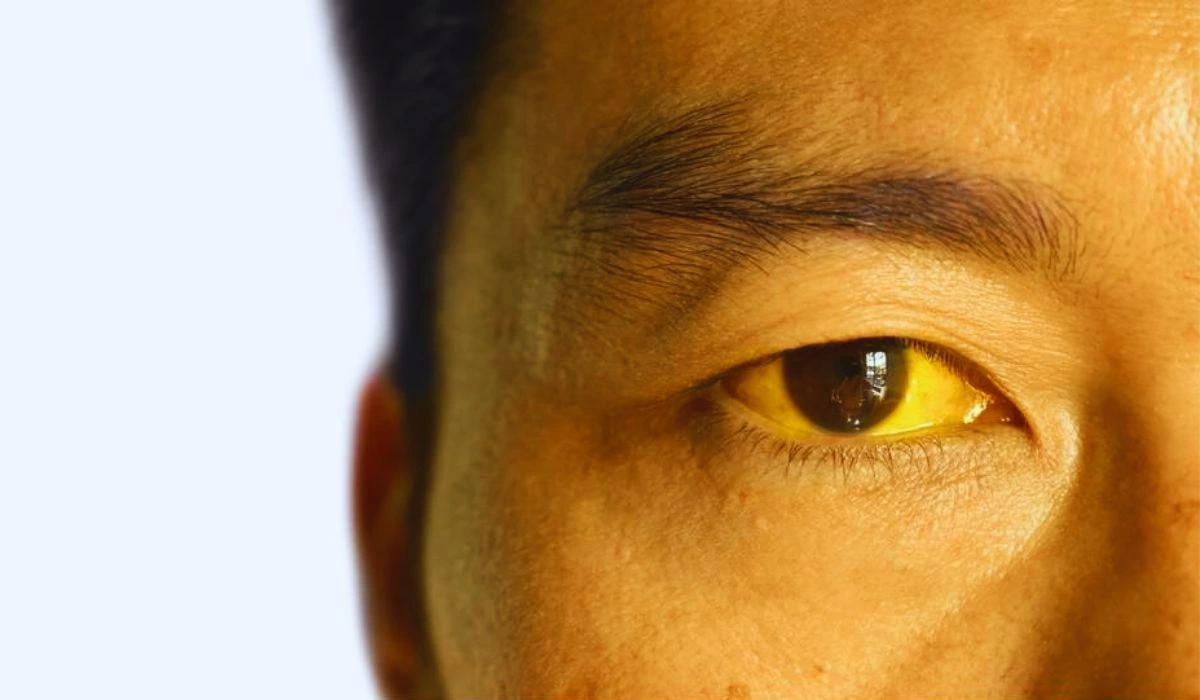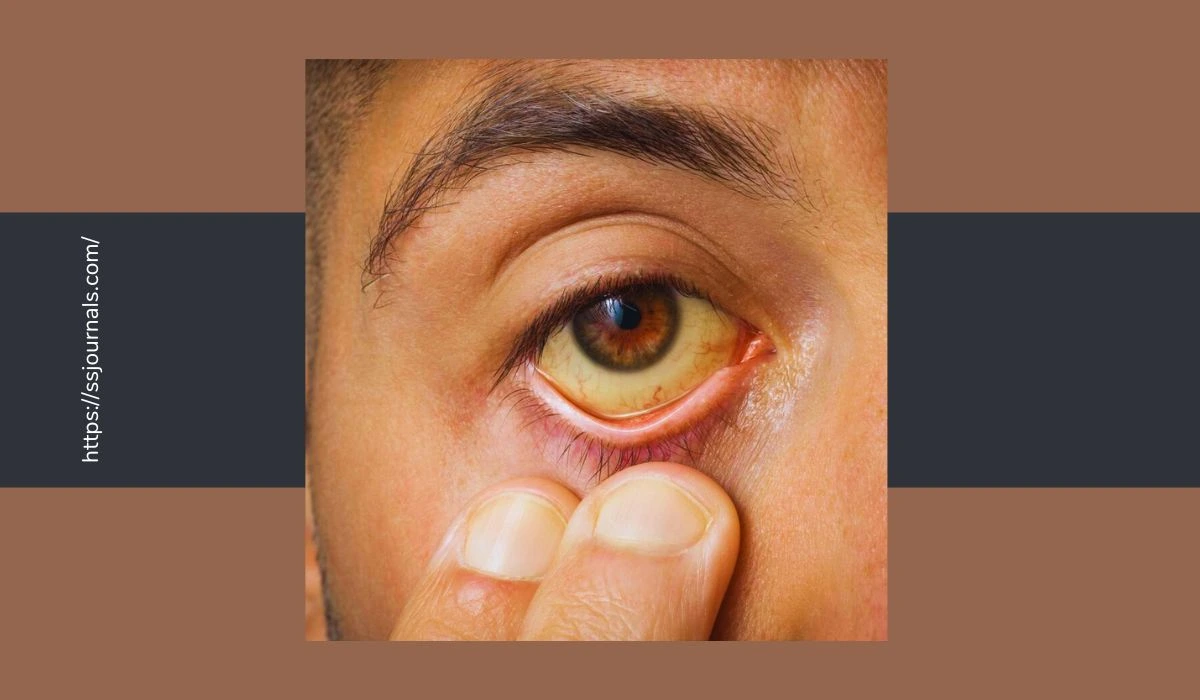Bilirubin is a yellow-orange pigment that is produced when old red blood cells break down in the body. A high level of bilirubin in the blood, known as hyperbilirubinemia, can cause jaundice – a yellowish discoloration of the skin and whites of the eyes.
While mild elevations in bilirubin are usually harmless, very high levels can be an indicator of an underlying health condition that requires treatment. Understanding the causes of hyperbilirubinemia is important for getting the right diagnosis and care.
High Bilirubin Symptoms
The most noticeable symptom of elevated bilirubin is jaundice. The skin, including palms and soles, will appear yellowish. The whites of the eyes may also be yellow. Jaundice often first appears on the face and spreads downward to the chest, abdomen, arms, and legs as bilirubin levels increase.

Other symptoms that can occur with high bilirubin include:
- Itchy skin
- Pale or clay-colored stools
- Dark urine
- Fatigue and weakness
- Loss of appetite
- Nausea
- Fever
Mild jaundice may not cause any symptoms other than yellowish skin and eyes. However, severely elevated bilirubin is a medical emergency that requires immediate treatment.
What Causes High Bilirubin In The Body?
There are several possible underlying causes of hyperbilirubinemia, including:
- Liver Diseases: Diseases that reduce or damage liver function can impair the organ’s ability to effectively process and excrete bilirubin. Common culprits include hepatitis, cirrhosis, and fatty liver disease.
- Genetic Disorders: Inherited disorders like Gilbert’s syndrome can cause a mild chronic elevation in bilirubin. More serious genetic defects like Crigler-Najjar syndrome can lead to dangerously high levels.
- Hemolysis: Conditions where red blood cells are broken down too rapidly release excess bilirubin into the bloodstream faster than the liver can clear it. Causes include sickle cell anemia, malaria, autoimmune disorders, and mechanical damage to blood cells.
- Bile Duct Problems: Obstructions in the bile ducts from gallstones, cancer, or other conditions can prevent proper bilirubin excretion. This leads to a buildup in the blood.
- Newborns: Hyperbilirubinemia is common in newborns in the first week of life due to the natural breakdown of fetal red blood cells and their still-developing liver function. This temporary jaundice resolves as the liver matures.
- Medications: Some medications like antibiotics and pain relievers can increase bilirubin levels by causing mild hemolysis.
How To Treat High Bilirubin?
Treatment depends on the underlying reason for the elevated bilirubin. When there is no serious cause, such as transient newborn jaundice, no intervention may be required. Otherwise, common treatments include:
- Medications that improve liver function and promote bile flow like ursodeoxycholic acid. These can lower mild elevations in bilirubin.
- Phototherapy uses special blue-light wavelengths that help convert bilirubin into forms that can be excreted in urine and stool. This is used to treat newborn jaundice.
- Blood transfusions if rapid hemolysis is the cause, to halt the flood of bilirubin from destroyed red blood cells.
- Surgery to repair obstructed or damaged bile ducts improving bilirubin drainage.
- Liver transplant if chronic liver disease is causing persistently high bilirubin that cannot be corrected.
- Plasmapheresis to remove excess bilirubin from the blood in extreme cases.
- Stopping medications that are exacerbating hyperbilirubinemia.
Prompt medical attention for significant jaundice or high bilirubin levels is important, as untreated hyperbilirubinemia can progress to brain damage from bilirubin deposition. With the right treatment approach, even very elevated bilirubin can usually be lowered to safe levels.
Conclusion
Bilirubin is a normal waste product from the breakdown of red blood cells but can build up in the blood when the liver is unable to properly clear it. Mild elevations usually cause no harm, but when bilirubin levels become very high it leads to the yellowing of the skin and eyes known as jaundice.
Understanding what causes high bilirubin – whether liver disease, genetic disorders, bile duct problems, hemolysis, or other issues – is key to getting an accurate diagnosis and appropriate treatment to reduce bilirubin to normal.
With timely treatment of the underlying condition, even severe jaundice can often be managed effectively. However untreated hyperbilirubinemia can have serious consequences, so following up promptly on yellowing skin or eyes is advised.
FAQs
A: Bilirubin levels above 3 mg/dL are considered elevated. Levels above 20-25 mg/dL can be dangerous and require emergency treatment. Extremely high levels above 30-50 mg/dL can cause severe neurological symptoms and brain damage.
A: Eating foods high in fiber, drinking plenty of fluids, exercising regularly, avoiding alcohol, and taking herbal supplements like milk thistle may help slightly lower mildly elevated bilirubin levels. However medical treatment is still needed for levels over 3 mg/dL.
A: Bilirubin can be directly measured through a total and direct bilirubin blood test. It may also be evaluated indirectly through liver function tests like AST, ALT, and alkaline phosphatase.
A: Newborn jaundice is caused by the breakdown of fetal blood cells after birth and immature liver function. These specific causes only apply to infants. However, adults can develop jaundice from liver disease, hemolytic anemia, or other conditions that increase bilirubin production and impair excretion.
A: Extremely elevated bilirubin over 25-50 mg/dL can be life-threatening and result in kernicterus, a type of brain damage if left untreated. However, with prompt medical care even very high levels can usually be reduced without permanent harm.

